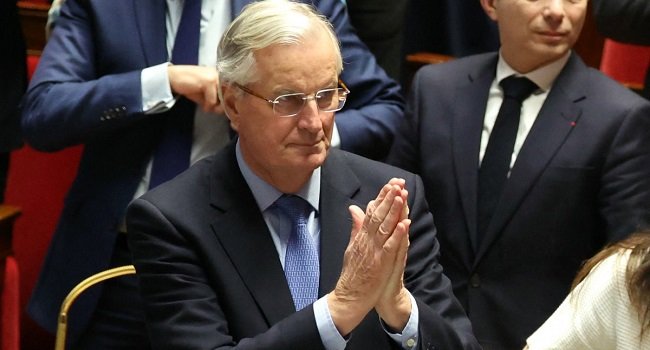French Prime Minister Michel Barnier submitted his resignation to President Emmanuel Macron on Thursday, following his defeat in a parliamentary vote of no confidence. The development plunges France into deeper political and financial uncertainty.
Barnier, poised to become France’s shortest-serving prime minister in modern history, arrived at the Elysee Palace at 9:00 a.m. GMT to formally step down, as required by the constitution after a parliamentary defeat.
The no-confidence motion, tabled by the hard-left opposition and supported by Marine Le Pen’s far-right party, secured a majority in parliament on Wednesday.
Barnier’s ouster follows snap parliamentary elections earlier this year, which produced a hung parliament with no party holding a clear majority. The far right emerged as a key player in determining the government’s survival.
The immediate trigger for the no-confidence vote was Barnier’s proposed 2025 budget, which included unpopular austerity measures aimed at stabilizing France’s finances. A majority of lawmakers rejected the plan, deeming it unacceptable.
The outgoing premier had further fueled tensions on Monday by forcing through a social security financing bill without parliamentary approval, a move that sparked widespread criticism.
The collapse of Barnier’s government has left France without an approved budget for 2025. Under the current circumstances, the previous year’s budget will automatically roll over into next year unless a new administration manages to pass a new budget before Christmas — a prospect considered highly unlikely.
President Macron is now tasked with urgently appointing a new prime minister to stabilize the political and financial chaos engulfing the country.



